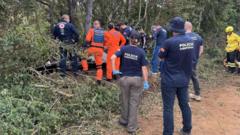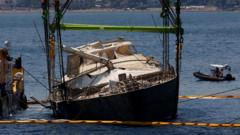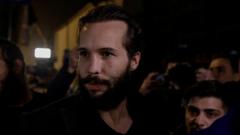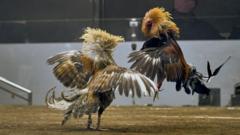The South African government has announced a new judicial inquiry into allegations of political interference in the prosecution of crimes committed during apartheid, responding to calls for justice by victims' relatives. This decision follows a court case by families seeking compensation for the perceived lack of accountability in past administrations.
South Africa Launches Inquiry into Apartheid Era Criminal Prosecutions
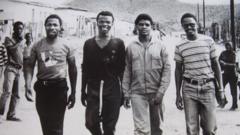
South Africa Launches Inquiry into Apartheid Era Criminal Prosecutions
President Cyril Ramaphosa initiates a judicial inquiry to investigate claims of political interference in apartheid-era crime prosecutions, following pressure from victims' families.
South African President Cyril Ramaphosa has officially launched a judicial inquiry aimed at investigating claims of political interference in the prosecution of crimes from the apartheid era. This significant announcement comes three decades after the end of apartheid and is a response to persistent pressure from a group of survivors and the families of victims who have sued Ramaphosa's government, alleging that justice has not been adequately served.
The Truth and Reconciliation Commission (TRC), founded in 1996 to address human rights violations during apartheid, uncovered numerous atrocities, including murder and torture. However, despite these revelations, very few cases have actually been prosecuted in court.
In a presidential statement announcing the inquiry, Ramaphosa emphasized his commitment to uncovering the truth and ensuring that the ongoing concerns over past injustices reach a resolution. This inquiry is the result of settlement discussions stemming from a high court case involving 25 families and survivors who are seeking damages amounting to $9 million (£6.8 million), alleging that the governments following apartheid did not adequately investigate these crimes.
Among the plaintiffs is the son of Fort Calata, one of the Cradock Four — a group of anti-apartheid activists murdered by security forces in 1985, an incident that ignited widespread outrage. While some of the police officers involved confessed to their part during TRC hearings, they were denied amnesty and have since passed away without facing legal consequences.
For years now, critics have accused the African National Congress (ANC) leadership of colluding with the remnants of the former apartheid government to sidestep prosecutions. The ANC has continuously refuted these claims. However, a recent statement from the presidency acknowledged the ongoing accusations of improper influence hindering investigations into apartheid-era crimes, which have persisted throughout various administrations.
The details regarding the head of the inquiry and its timeline are expected to be announced shortly.





